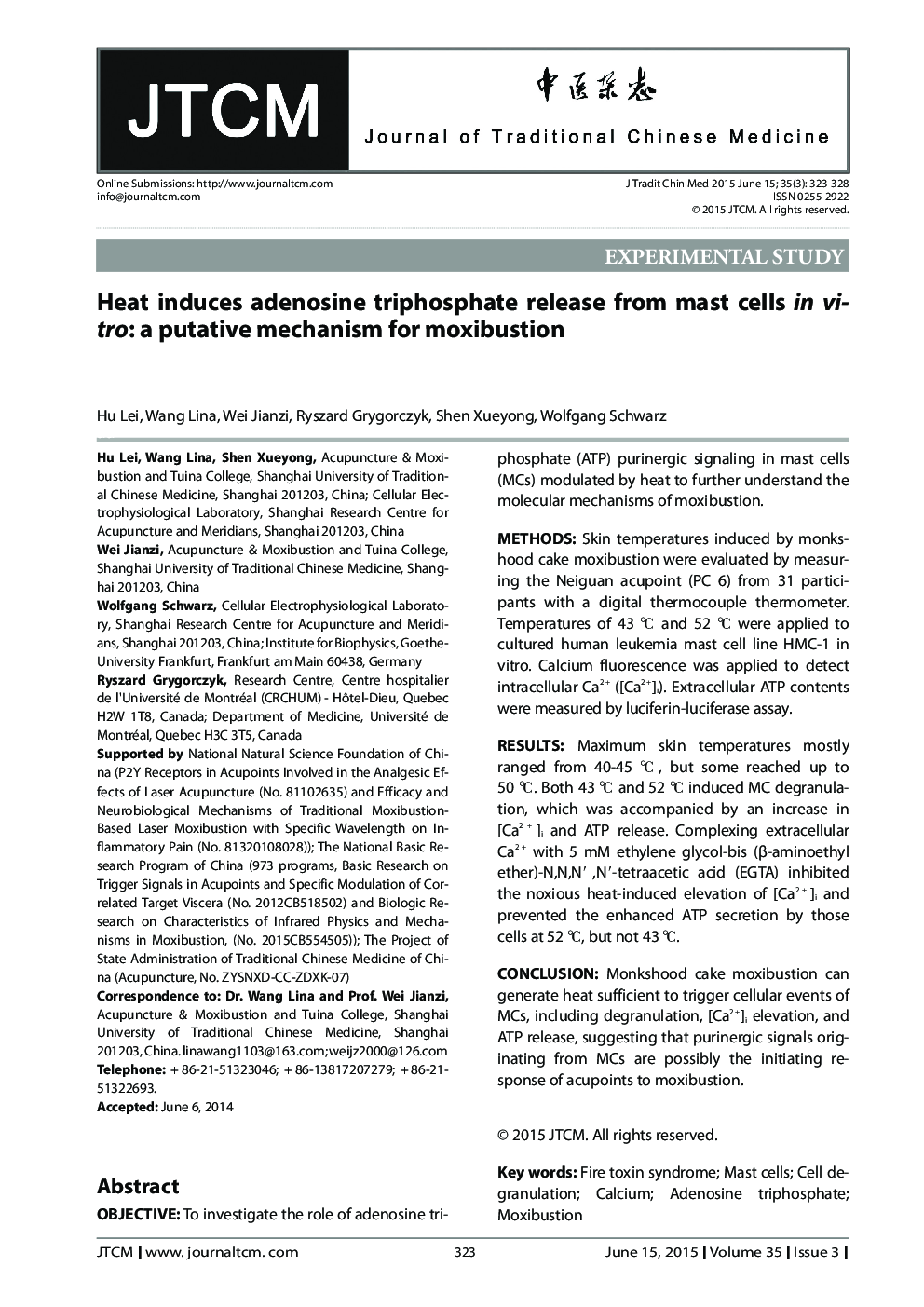| Article ID | Journal | Published Year | Pages | File Type |
|---|---|---|---|---|
| 4201233 | Journal of Traditional Chinese Medicine | 2015 | 6 Pages |
ObjectiveTo investigate the role of adenosine triphosphate (ATP) purinergic signaling in mast cells (MCs) modulated by heat to further understand the molecular mechanisms of moxibustion.MethodsSkin temperatures induced by monkshood cake moxibustion were evaluated by measuring the Neiguan acupoint (PC 6) from 31 participants with a digital thermocouple thermometer. Temperatures of 43 °C and 52 °C were applied to cultured human leukemia mast cell line HMC-1 in vitro. Calcium fluorescence was applied to detect intracellular Ca2+ ([Ca2+]i). Extracellular ATP contents were measured by luciferin-luciferase assay.ResultsMaximum skin temperatures mostly ranged from 40–45 °C, but some reached up to 50 °C. Both 43 °C and 52 °C induced MC degranulation, which was accompanied by an increase in [Ca2+]i and ATP release. Complexing extracellular Ca2+ with 5 mM ethylene glycol-bis (β-aminoethyl ether)-N,N,N',N'-tetraacetic acid (EGTA) inhibited the noxious heat-induced elevation of [Ca2+]i and prevented the enhanced ATP secretion by those cells at 52 °C, but not 43 °C.ConclusionMonkshood cake moxibustion can generate heat sufficient to trigger cellular events of MCs, including degranulation, [Ca2+]i elevation, and ATP release, suggesting that purinergic signals originating from MCs are possibly the initiating response of acupoints to moxibustion.
